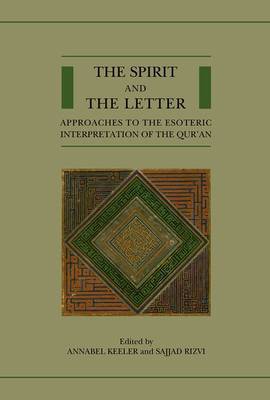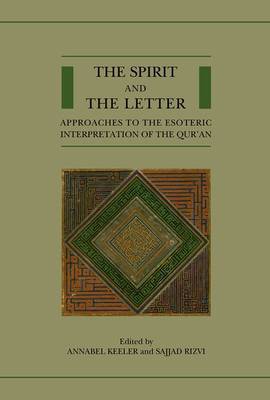
- Retrait gratuit dans votre magasin Club
- 7.000.000 titres dans notre catalogue
- Payer en toute sécurité
- Toujours un magasin près de chez vous
- Retrait gratuit dans votre magasin Club
- 7.000.0000 titres dans notre catalogue
- Payer en toute sécurité
- Toujours un magasin près de chez vous
The Spirit and the Letter
Approaches to the Esoteric Interpretation of the Qur'an
153,45 €
+ 306 points
Description
This volume is the first to focus specifically on esoteric interpretation as a phenomenon in the field of Qur'anic exegesis and to show the plurality of ways it has been manifested in different Muslim traditions. Concern with the inner, spiritual implications of the Qur'an has usually been associated with mystical and Sufi trends in Islam. However, there have also been exegetes among the Shi'a, as well as among philosophers, who sought to supplement their understanding of the Qur'an's apparent meaning by eliciting deeper significations through contemplation of the verses. The Spirit and the Letter examines the multiplicity of these esoteric approaches, covering a period that extends from the third/ninth century to the present. It includes chapters on philosophical and Shi'i exegetes, such as Ibn Sina (d. 428/1037) and Mulla Sadra (d. 1045/1635-6), in addition to studies of a range of Sufi perspectives, from al-Sulami (d. 412/1021) and al-Qushayri (d. 465/1072) to Ruzbihan Baqli (d. 606/1209), as well as representatives of the Ibn 'Arabi and Kubrawi schools. Considered together, the range of studies in this volume enable us to see what these approaches have in common and how they differ, and how the hermeneutics and content of exegesis are affected by doctrinal and ideological perspectives of various traditions and periods. Furthermore, they deepen our understanding of what actually constitutes esoteric interpretation and the need to look beyond the letter to the spirit of the Qur'anic word.
Spécifications
Parties prenantes
- Editeur:
Contenu
- Nombre de pages :
- 495
- Langue:
- Anglais
- Collection :
Caractéristiques
- EAN:
- 9780198783336
- Date de parution :
- 25-10-16
- Format:
- Livre relié
- Format numérique:
- Genaaid
- Dimensions :
- 145 mm x 218 mm
- Poids :
- 816 g

Les avis
Nous publions uniquement les avis qui respectent les conditions requises. Consultez nos conditions pour les avis.





